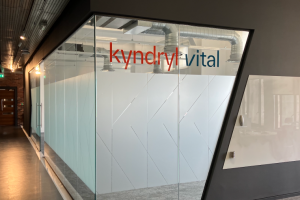Collaborative approach the future for NW bio-science sector says CBI

CBI director general John Cridland says the North West’s bio-science sector must re-adjust to a new models of collaborative working.
Speaking to TheBusinessDesk.com about the impact pharmaceutical giant AstraZeneca planned relocation of more than 2,000 R&D staff from Alderley Park Cheshire to Cambridge, Mr Cridland said the setback present a “huge opportunity” for small firms in the region.
There was a “certain inevitability” about the AstraZeneca decision given the pressure on big pharmaceutical companies, he said, but argued that
all was not lost.
“When I was first appointed as director general one of the first big issues that I had to deal with was Pfizer’s closure of its R&D site in Sandwich, Kent.
“Europe is sadly overweighted with pharmaceutical companies and the market is very difficult with patent expiry and austerity measures seeing governments seeking cheaper and cheaper drug deals.
“The big players’ focus is East, to the fast growing markets, and the days where big pharma can do massive amounts of speculative R&D have gone.
“There is a huge opportunity though for smaller bioscience and life sciences companies in this region to work with the big guys, who are looking to work more in collaboration.”
Mr Cridland said the business models of the future would be built around small companies working closely with universities and large players.








